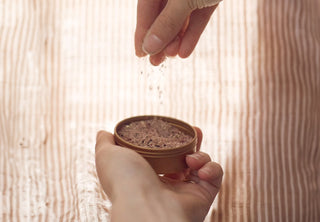What is proper Hydration?
Hydration refers to the process of maintaining an adequate balance of water and minerals in the body's tissues and cells. Signs of proper hydration include clear or light-colored urine, normal skin elasticity, and adequate energy levels. Conversely, signs of dehydration can include dark yellow urine, dry skin, dizziness, fatigue, and confusion. Proper hydration is essential for various bodily functions, including:
Regulating Body Temperature : Water helps dissipate heat through perspiration and respiration, helping maintain a stable internal temperature.
Transporting Nutrients and Oxygen : Water is a key component of blood, which carries nutrients and oxygen to cells and removes waste products.
Lubricating Joints : The fluid that helps lubricate and cushion your joints is composed of mostly water.
Protecting Organs and Tissues : Water helps protect sensitive tissues like the eyes, spinal cord, and brain.
Supporting Digestion : Water is vital for producing saliva and stomach secretions, aiding in the digestion and absorption of food.
Maintaining Cellular Health : Cells require water to function properly, including for biochemical reactions, nutrient transport, and maintaining cellular structure.
Overall, being "hydrated" means having the right amount of water and minerals in the body to support these essential functions and maintain overall health and well-being.

What are minerals in water?
Electrolytes! Electrolytes are minerals that carry an electric charge and are essential for various bodily functions such as maintaining cellular health (mentioned above). They are found in your blood, urine, tissues, and other body fluids. Common electrolytes include sodium, potassium, calcium, magnesium, chloride, bicarbonate, and phosphate.
A History of Hydration
You might think staying hydrated is as simple as "drink more water" but that's a common misconception. You may have even heard of the old recommendation to drink "8 glasses of water a day". Let's explore where that piece of advice originated and why it may actually dehydrate you!
1945 U.S. Food and Nutrition Board Report
The U.S. Food and Nutrition Board published dietary guidelines in 1945 that included a statement suggesting that a suitable daily allowance of water for adults is 2.5 liters, which is about 8 glasses (each glass being 8 ounces). This recommendation included all fluids consumed, not just water, meaning it accounted for water in other beverages and foods as well.
Over time, this guideline appears to have been misinterpreted or oversimplified. Despite its widespread acceptance, there isn't a strong scientific basis for the exact "8 glasses" figure. Individual water needs can vary significantly based on factors like age, weight, climate, physical activity, and overall health.
So how much water should I drink a day? It's more of a question of quality vs quantity.
Mineral Deficiencies and Water Intoxication
Drinking too much water without replenishing electrolytes can lead to a condition known as hyponatremia (sounds like hai·pow·nay·tree·mee·uh), or water intoxication. This occurs when the balance of electrolytes in your body, particularly sodium, is disrupted by an excessive intake of water. Here’s what can happen:
Dilution of Sodium in the Blood : Sodium is a crucial electrolyte that helps regulate water balance in and around cells. Excessive water intake dilutes the sodium in your blood, lowering its concentration.
Water Shifts into Cells : When sodium levels drop, water moves into cells to balance the concentration gradient. This can cause cells to swell.
Swelling of Cells : While most cells can handle some swelling, brain cells are particularly sensitive to this change. Swelling in the brain can increase intracranial pressure, leading to serious health issues.
Symptoms of Hyponatremia
Mild Symptoms: These can include nausea, headache, confusion, and lethargy.
Severe Symptoms: As hyponatremia progresses, it can cause muscle weakness, spasms, seizures, unconsciousness, and in extreme cases, coma or death.

What type of water should you drink to stay hydrated?
Water is water, right? Yes and no. Water is H20 AND other elements found (or not found) in it. Let's dive into a quick list of different types of potable (drinkable) water.
Tap Water: Tap water is provided by a municipal supply. It is widely available, often contains essential minerals, and is regulated for safety. However, it may contain contaminants like chlorine, lead, or pesticides depending on the local supply and infrastructure.
Bottled Water: Has various sources such as springs, wells, and municipal supplies and is often regulated. Bottled water can be expensive compared to tap water and have a larger environmental impact.
Spring Water: Comes from natural springs and is naturally filtered. Spring water may contain beneficial minerals. It can be expensive and not always available. It's also hard to determine the mineral content.
Mineral Water: Sourced from underground reservoirs and is naturally mineral-rich. It can be expensive and like spring water, its mineral content will vary by source.
Purified Water: Any water that has been treated to remove impurities. It is free of contaminants and usually has improved taste and odor with consistent quality. But because it is purified, it lacks beneficial minerals.
Distilled Water: Boiled and condensed to remove impurities and minerals. While it is free of contaminants it lacks essential minerals and is not ideal for long-term hydration needs.
Reverse Osmosis Water: Water is passed through a semi-permeable membrane filtration system to remove impurities. It is highly purified and removes a wide range of contaminants (like fluoride and chlorine) as well as minerals. It can also be more expensive as it produces waste water as it goes through the filtration system.
Expanding on Purified Water
Purified water has been mechanically filtered or processed to remove impurities and contaminants, such as bacteria, viruses, chemicals, and other pollutants. Purified water has many benefits for safety and improved taste and odor and may sound like it's the best solution. However, there are some downsides to purified water. The biggest is a lack of minerals.
Purified water often has essential minerals, such as calcium and magnesium, removed during the purification process. Over-reliance on purified water without addressing dietary intake of essential minerals can lead to deficiencies over time.
Electrolyte-Enhanced Water
Well, what is the solution to staying hydrated? For optimal hydration, you should replenish electrolytes to help your body retain water and ensure it is effectively used in the body's tissues and cells.
Sources of Electrolytes
To maintain electrolyte balance and proper hydration, here are some common sources:
Electrolyte-Rich Beverages : Sports drinks, oral rehydration solutions, and coconut water contain electrolytes and can be beneficial after intense exercise or illness.
-
Foods : Many foods are good sources of electrolytes, such as:
Sodium: Table salt, processed foods
Potassium: Bananas, oranges, spinach, potatoes
Calcium: Dairy products, leafy green vegetables
Magnesium: Nuts, seeds, whole grains, green leafy vegetables.
Supplements: In some cases, electrolyte supplements may be necessary, particularly for athletes or individuals with certain medical conditions.
A Note on Sports Drinks
While sports drinks can be beneficial for hydration and electrolyte replenishment during intense physical activity, they also have drawbacks including:
High sugar content that causes blood sugar spikes, excess calories without nutritional value, and tooth decay.
Artificial ingredients such as additives, preservatives, and artificial sweeteners. All of which can cause digestive issues or other health concerns.
What We Recommend for Optimal Hydration
We developed a hydration tea that is rich in minerals to ensure hydration and provide essential nutrients for the body. HYDRATION+ TEA.
More Fun Ways to Stay Hydrated
How do you know how many electrolytes to consume to stay hydrated?
Determining the right amount of electrolytes to consume to stay hydrated depends on various factors, including your activity level, environment, diet, and individual health needs. You can look at the recommended daily requirements, assess your activity level, consider your environment (hot vs cold weather), your diet, and most importantly, listen to your body.
Here is a general guideline for electrolyte recommended daily intake:
Sodium : 1,500 to 2,300 mg per day for adults.
Potassium : 2,500 to 3,400 mg per day for adults.
Calcium : 1,000 to 1,300 mg per day for adults.
Magnesium : 310 to 400 mg per day for adults, depending on gender and age.
That's a Wrap
To stay properly hydrated, focus on maintaining a balance of electrolytes through a combination of a balanced diet, adequate fluid intake, and appropriate use of electrolyte products when needed. Monitoring your body’s signals and adjusting your intake based on your activity level, environment, and health status will help ensure you meet your individual electrolyte needs.

